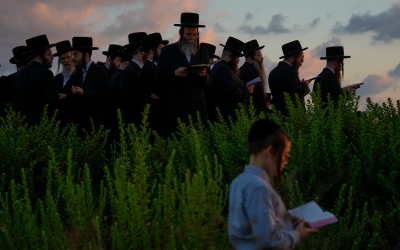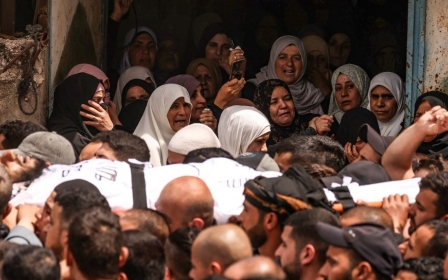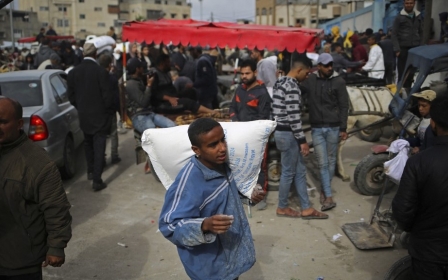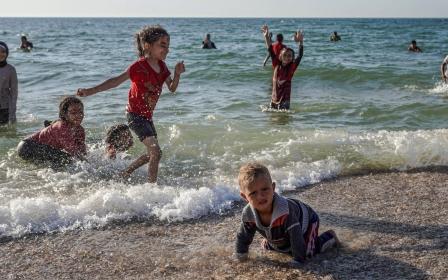Netzah Yehuda: The ultra-Orthodox Israeli army unit set to be blacklisted by the US
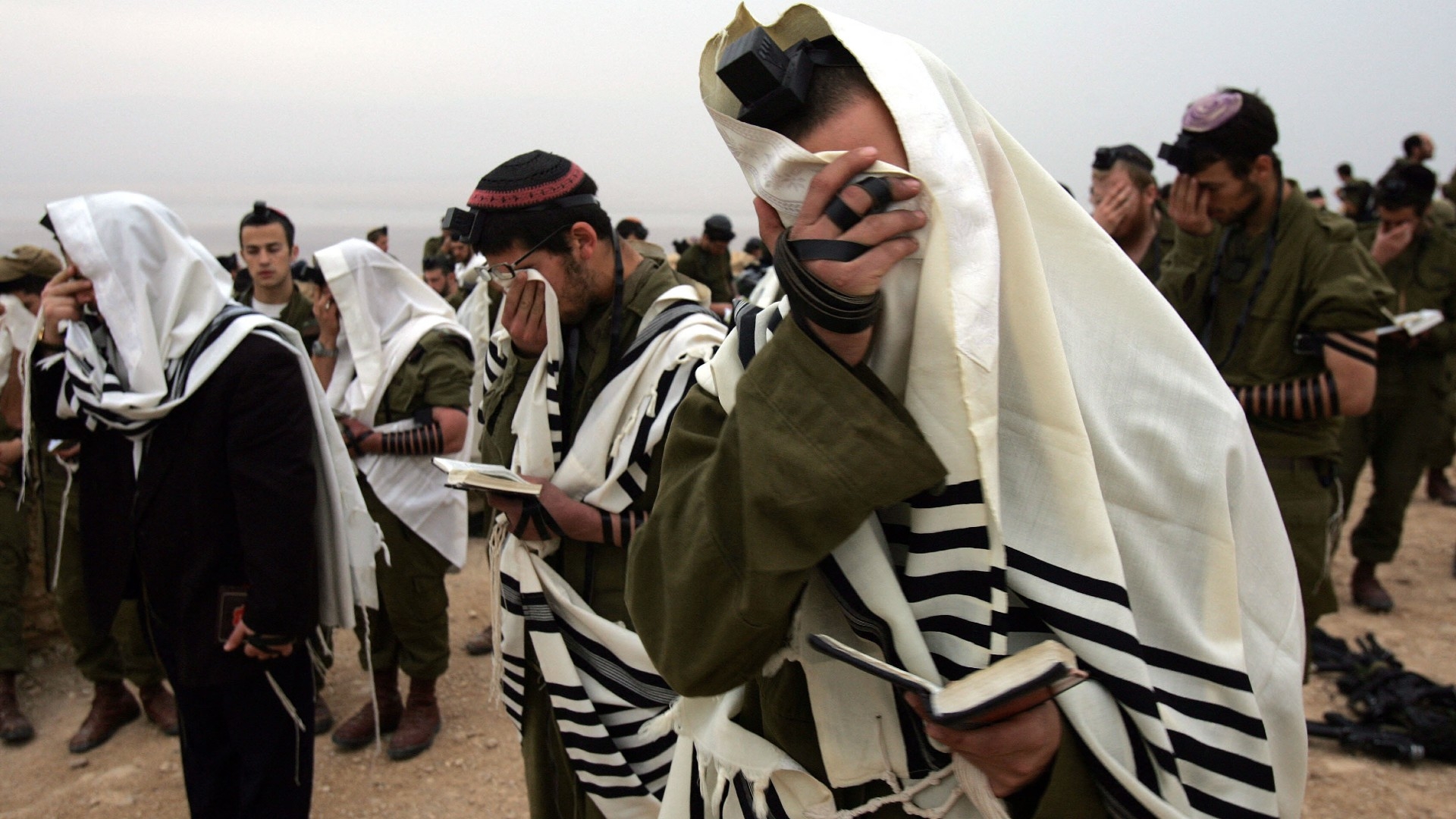
The United States looks set to blacklist Netzah Yehuda, an ultra-Orthodox Jewish military battalion in the Israeli army, over human rights violations in the occupied West Bank.
According to US sources cited by Axios, Secretary of State Antony Blinken is set to announce the designation within the coming days.
What will the ban mean for Netzah Yehuda?
The designation will ban the unit from receiving weaponry or training from the US, under a 1997 law named after former Senator Patrick Leahy, which denies US aid or training to foreign military or security units found to have committed “gross violations of human rights”.
If it goes ahead, it’s reported to be the first time an Israeli army unit will have been directly punished by Washington.
Analyst Mairav Zonszein noted that the proposed action is not an additional punitive sanction, as has been reported in some media, but rather an enforcement of the Leahy law.
A US State Department panel had recommended months ago that Blinken blacklist a number of Israeli military and police units following a review into rights' abuses against Palestinians, according to a report last week in ProPublica.
Axios reported that besides Netzah Yehuda, several other Israeli units were not going to be sanctioned by Washington because they "remedied their behaviour".
What has been the Israeli reaction to the ban?
The touted blacklisting has been condemned by Israeli political figures.
Prime Minister Benjamin Netanyahu described the US action as the "height of absurdity and a moral low point" while far-right finance minister Bezalel Smotrich labelled it "absolute madness".
“I have great appreciation for our American friends, but the decision to impose sanctions on an IDF unit . . . sets a dangerous precedent,” said cabinet minister Benny Gantz, a rival of Netanyahu.
Opposition leader Yair Lapid called the blacklisting a "mistake" but laid the blame at Israel's far-right government.
He said that National Security Minister Ben Gvir and Smotrich were "not opposed to Jewish terrorism and extreme settler riots", which was causing "serious harm" to Israel's international status.
What is Netzah Yehuda?
Netzah Yehuda was first formed in 1999; it was originally known as Nahal Heredi and comprised just 30 Israeli soldiers.
The all-male military unit was established to accommodate the religious needs of ultra-Orthodox Haredi men, who have been exempted from military conscription since the creation of Israel in 1947.
The unit excludes non-Jews, has strict religious dietary regulations, and maintains strict gender segregations (officers' wives are the only women allowed on its bases).
Currently, the unit has around 1,000 troops. It has often recruited right-wing settlers belonging to the Hilltop Youth movement, who are routinely turned away from other units within the Israeli military.
"The battalion attracts Religious Zionists, who combine Jewish religious interpretations with nationalist militarism," Marwa Maziad, a professor of Israel studies at the University of Maryland, told Middle East Eye.
She said that due to the exemption for ultra-Orthodox Israelis, the unit relies on volunteers rather than drafting soldiers.
"This very exemption is being debated in Israel right now," said Maziad. "The fact that those very informal illegal settlers [would] start formally serving as Haredi conscripts... is a significant step towards further religionisation and theocratisation of the once-secular [Israeli military]."
The battalion is one of five that make up the Kfir Brigades, which the Israeli military describes as being at the “forefront of the war against Palestinian terrorism” in the occupied West Bank.
Netzah Yehuda operates in the West Bank cities of Ramallah and Jenin.
Why has Netzah Yehuda come to attention?
In January 2022, the military unit sparked international outrage after Palestinian-American Omar Muhammad Assad, 80, died of a heart attack following a violent detention at the hands of Netzah Yehuda troops.
Eyewitnesses said Assad was handcuffed, gagged and forced to lie on his stomach, before being left in that position by the departing Israeli soldiers. He was later found by the side of the road and pronounced dead from cardiac arrest.
Assad’s death sparked calls for an investigation by members of Congress from Wisconsin, where Assad had previously lived for decades.
"According to his autopsy, Assad was beaten, leading to a heart attack. The soldiers responsible were not prosecuted, but the battalion was redeployed away from the West Bank," said Maziad.
What other abuses has Netzah Yehuda carried out?
Before that incident, the battalion already had a long history of violent abuses against Palestinians.
In June 2015, a Netzah Yehuda soldier shot an unarmed Palestinian in the town of Silwad, north of Ramallah.
The Israeli army claimed the Palestinian had thrown a molotov cocktail at soldiers, but video footage showed no such threat.
In October 2021, four soldiers from the unit were held over the alleged beating and sexual assault of a Palestinian detainee
That same month, reports emerged of at least five soldiers from the unit physically assaulting and arbitrarily detaining Shadi al-Ghobaishi, a Palestinian civilian from the Jalazone refugee camp in Ramallah.
Ghobaishi had reportedly approached the soldiers to ask them to stop firing tear gas and sound grenades near his home, as it was scaring his children.
In two separate incidents in October 2015, Palestinians detained by Netzah Yehuda in Jenin and Tulkarm were blindfolded, handcuffed, beaten and shocked using electrodes.
Months later, a soldier who carried out the electric shocks and three others involved in the incident were sentenced to between seven and nine months in prison over the incident.
In August 2016, an Israeli soldier belonging to the unit shot and killed Palestinian man Iyad Zakariya Hamed near Silwad.
The military alleged that Hamed posed a threat, before later retracting the claims. There were no prosecutions in relation to the case.
In December 2018, Netzah Yehuda soldiers shot and killed Qassem Abbasi, 17, from the Silwan neigbourhood of occupied East Jerusalem.
Soldiers initially alleged that Abbasi had attempted to run them over, but the Israeli military later confirmed that the teenager posed no threat. While an investigation was launched into the incident, the case was later closed with no indictment.
In October 2021, four soldiers from the unit were held over the alleged beating and sexual assault of a Palestinian detainee.
Maziad stated: "It is significant that the US State Department would want to apply the Leahy law on this particular unit, as to single it out as different from the rest of practices within the Israeli military as a whole."
She said that the rejection of the blacklisting from across the political divide in Israel was to ensure that a precedent was not set among Israeli military units, adding that she expected Netzah Yehuda to be treated as an exception.
What have human rights groups said about Netzah Yehuda?
According to human rights organisation Dawn, there have been several other instances of arbitrary detention and physical assaults of Palestinians by the unit.
Raed Jarrar, advocacy director at Dawn, told MEE: "The violations committed by the blacklisted units are horrific, but they are not different from most other units at the Israeli military."
In 2022, Dawn submitted a request to the US government to blacklist Netzah Yehuda.
"We chose this unit because it presented an example, not an exception, of how the Israeli military operates," Jarrar said.
"Engaging in gross violations of human rights, such as extrajudicial killings, torture, and enforced disappearance, is common practice in a country committing the crimes of apartheid and genocide at the same time."
Jarrar added that US action was significant and unprecedented, due to Israel enjoying a "blank check policy" for decades.
"Now that we have this tiny first step in the right direction, we're hoping for a snowball effect. The US government must apply all US law to Israel. This means blacklisting hundreds of other units, and suspending US arms transfers until further notice based on other binding laws and regulations that the Biden administration has ignored so far."
This article is available in French on Middle East Eye French edition.
Middle East Eye propose une couverture et une analyse indépendantes et incomparables du Moyen-Orient, de l’Afrique du Nord et d’autres régions du monde. Pour en savoir plus sur la reprise de ce contenu et les frais qui s’appliquent, veuillez remplir ce formulaire [en anglais]. Pour en savoir plus sur MEE, cliquez ici [en anglais].


